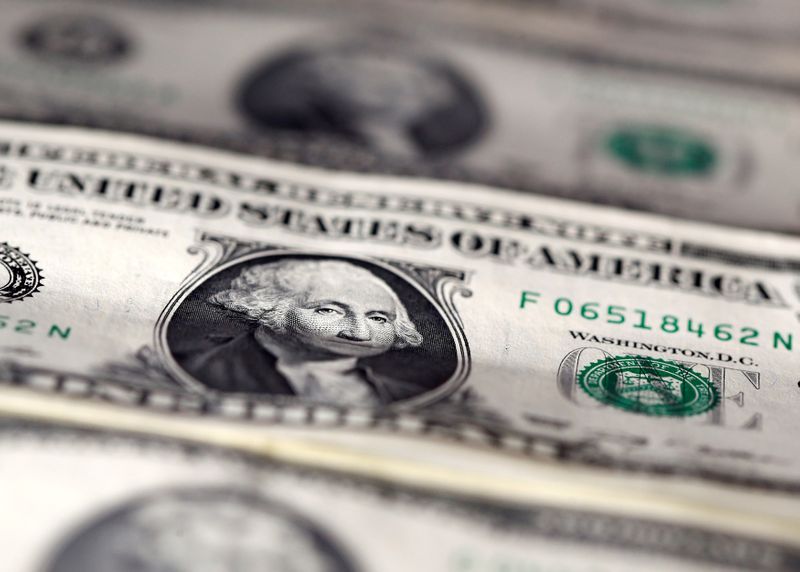By Tom Westbrook
SINGAPORE (Reuters) - The dollar clung to small gains on Tuesday as the greenback's safe-haven appeal was burnished by worries about a second wave of COVID-19, which drove the steepest stock market selloff in a month and underpinned a bond rally.
The United States, Russia and France all hit new daily records for coronavirus infections and overnight the S&P 500 index (SPX) fell 1.9% and Germany's DAX (GDAXI) dropped 3.7%.
Moves in the currency market were more muted, though the dollar index (=USD) lifted about 0.3% overnight and held there early in Asia trade while regional equities fell.
The largest gains for the greenback on Monday came against the (EUR=), up 0.4%, which was hit by a drop in German business confidence, and a 0.7% rise on the Canadian dollar
The yuan
"The dollar is broadly stronger, but not massively," said National Australia Bank senior FX strategist Rodrigo Catril.
Structural forces, like low real yields, have held back further gains, he added, and so has a wait-and-see approach to the U.S. election.
"I think many would probably remember the bad experiences we had going in to the Trump-Clinton election (in 2016)," said Catril.
"If you had a position on, you would have been whipsawed big time. I think the strategy this time is to travel light, and to choose the opportunity on the day rather than take on a very, very strong position going into the election."
The usually risk-sensitive Australian
The Japanese yen
A week out from polling day, national polls give Democrat Joe Biden a solid lead but the contest is much tighter in battleground states that could decide the outcome.
Biden and President Donald Trump both spent Monday campaigning in Pennsylvania.
Analysts regard a Biden victory, and especially Democrat control of the Senate, as negative for the dollar since it is expected to deliver big stimulus spending that would boost investor sentiment and drive demand for riskier currencies.
Positioning data showed long bets on the yen shrank for a fourth straight week last week, as investors wagered on a Biden victory, though short bets against the yen also fell - pointing to heightened uncertainty around the vote. <0#NETUSDFX=>
The euro nursed losses at $1.1809, having borne the brunt of worries about fresh coronavirus lockdowns and slipping after the German Ifo business climate index fell by more than expected and for the first time in six months in October.
Traders are waiting for any news to emerge from a meeting of China's Communist Party leaders to set the next five-year plan, while keeping a wary eye on the potential fallout from U.S. arms sales to Taiwan.
China said it will impose sanctions on Lockheed Martin (N:LMT), Boeing Defense (N:BA) and Raytheon (N:RTX).
Elsewhere the Turkish lira

